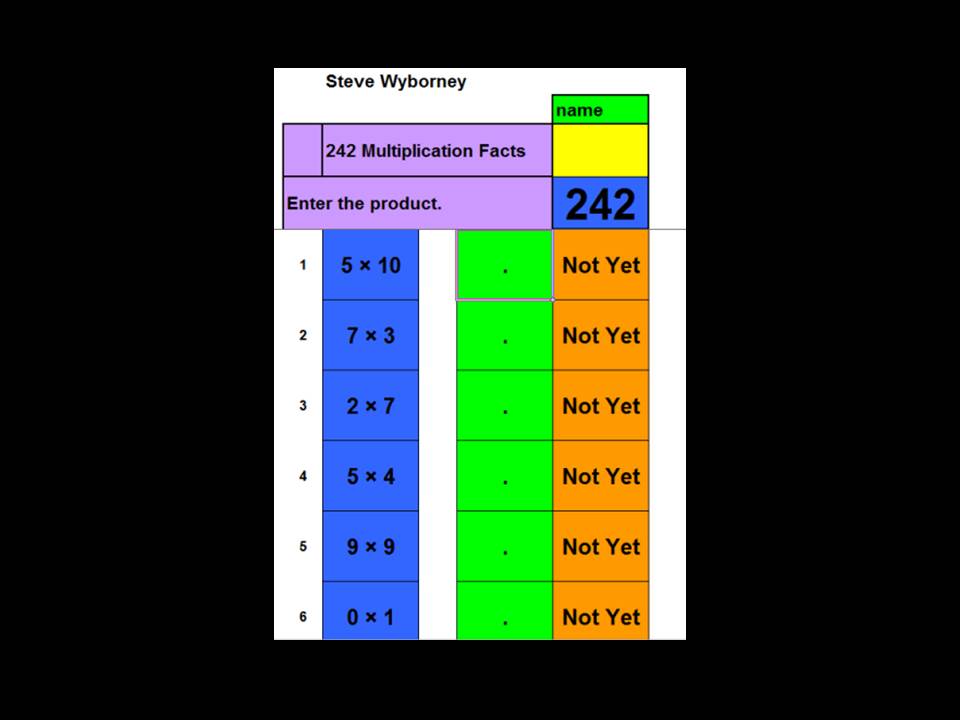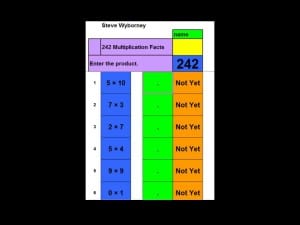A FLAIR is a highly interactive document that can be used flexibly to rapidly provide independent feedback to students. The video below will detail how to use the Multiplication FLAIR document. FLAIR is an acronym for Feedback for Learning at an Advanced Independent Rate. While I have hundreds of different kinds of FLAIR documents that I’ve written over the years, I wanted to begin by sharing the Multiplication FLAIR. I encourage you to watch the video, download the document, and use it to provide helpful feedback to your students.
Download the Multiplication FLAIR document here.
If you do not have Excel, but would like to download the Excel viewer from Microsoft, try this link.
I would appreciate any feedback you may have regarding the FLAIR document.
You may also be interested in these other animated instructional posts:
The Animated Multiplication Table
The Green Light Hundreds Chart



Leave a Reply